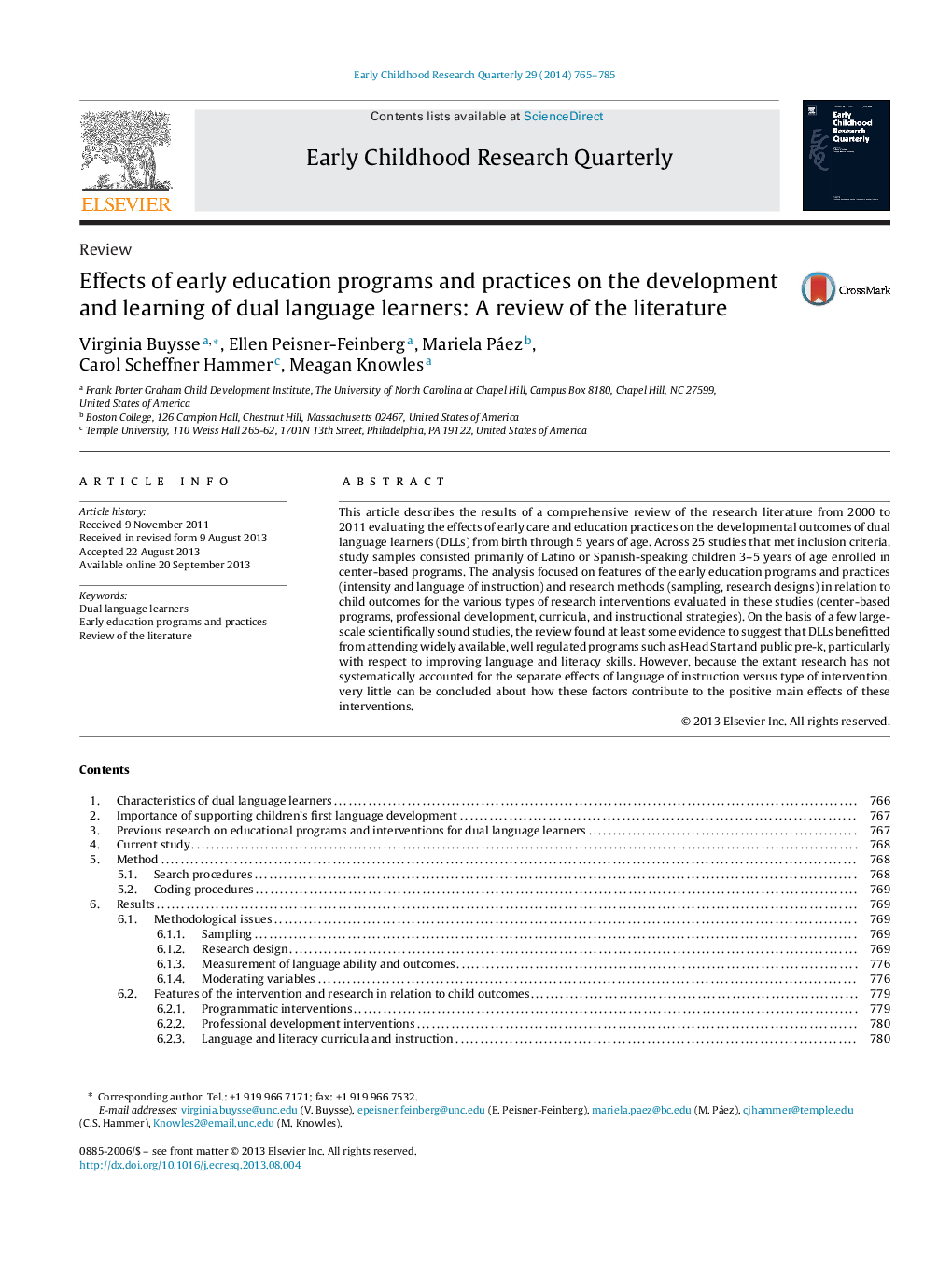| کد مقاله | کد نشریه | سال انتشار | مقاله انگلیسی | نسخه تمام متن |
|---|---|---|---|---|
| 353821 | 618946 | 2014 | 21 صفحه PDF | دانلود رایگان |
• This review evaluated the research from 2001 to 2011 to examine the effects of educational practices on DLLs from birth through 5 years of age.
• The review found at least some evidence for the benefits of attending widely available, well regulated early childhood programs.
• Very little can be concluded about the separate contributions of language of instruction versus type of intervention on the positive main effects of these interventions.
This article describes the results of a comprehensive review of the research literature from 2000 to 2011 evaluating the effects of early care and education practices on the developmental outcomes of dual language learners (DLLs) from birth through 5 years of age. Across 25 studies that met inclusion criteria, study samples consisted primarily of Latino or Spanish-speaking children 3–5 years of age enrolled in center-based programs. The analysis focused on features of the early education programs and practices (intensity and language of instruction) and research methods (sampling, research designs) in relation to child outcomes for the various types of research interventions evaluated in these studies (center-based programs, professional development, curricula, and instructional strategies). On the basis of a few large-scale scientifically sound studies, the review found at least some evidence to suggest that DLLs benefitted from attending widely available, well regulated programs such as Head Start and public pre-k, particularly with respect to improving language and literacy skills. However, because the extant research has not systematically accounted for the separate effects of language of instruction versus type of intervention, very little can be concluded about how these factors contribute to the positive main effects of these interventions.
Journal: Early Childhood Research Quarterly - Volume 29, Issue 4, 4th Quarter 2014, Pages 765–785
